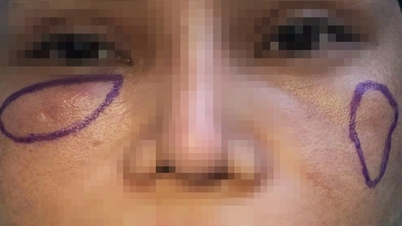The time you go to bed makes a big difference in the structure and quality of your sleep. But in general, going to bed later can mean getting less sleep.
However, not everyone can choose to sleep early, such as people who work night shifts or have problems with sleep disorders, according to the health website Medical News Today (UK).

Going to bed early will help maintain a healthy immune system and contribute to weight control.
Going to bed early can bring the following health benefits:
Boost your immune system
One of the first benefits of going to bed early is that it boosts immunity. When you sleep, your immune system releases proteins called cytokines. These cytokines are important for your health.
When we are healthy, cytokines act as chemical messengers to cells, thereby maintaining immune system function. When we are sick, cytokines stimulate the immune system, depending on the threat, the body will have an appropriate response.
Furthermore, some cytokines actually help with sleep. Not getting enough sleep can negatively affect the body's production of cytokines as well as the number of cells and antibodies that help fight infection.
Helps skin healthy
Some research evidence suggests that going to bed an hour earlier can help your skin look brighter and healthier. On the contrary, lack of sleep will negatively affect your skin. Specifically, lack of sleep will cause dark circles under the eyes, make your skin less rosy, lead to reduced blood flow to the skin and make the skin pale.
Additionally, certain hormones are active during sleep, including somatotropin, a growth hormone that provides benefits to the skin, such as repair and plumping.
Helps manage weight
Not getting enough sleep can throw off important hormones like leptin and ghrelin, which can increase your appetite. In addition, not getting enough sleep can lead to increased levels of the stress hormone cortisol, which can cause your body to store more fat.
Reduce the risk of type 2 diabetes

Not getting enough sleep may increase your risk of type 2 diabetes
Not getting enough sleep can increase your risk of type 2 diabetes. The hormone insulin plays a very important role in health, allowing cells to absorb blood sugar, thereby maintaining stable blood sugar.
However, in type 2 diabetes, cells become resistant to insulin. This means that cells cannot absorb blood glucose as well as they should.
Additionally, if a person has diabetes and regularly sleeps less than 7 hours/night, blood sugar control will be more difficult, according to Medical News Today.
Source link



![[Photo] Prime Minister Pham Minh Chinh chairs the regular Government meeting in April 2025](https://vphoto.vietnam.vn/thumb/1200x675/vietnam/resource/IMAGE/2025/5/6/48eb0c5318914cc49ff858e81c924e65)
![[Photo] Prime Minister Pham Minh Chinh receives Mr. Tomas Heidar, Chief Justice of the International Tribunal for the Law of the Sea (ITLOS)](https://vphoto.vietnam.vn/thumb/1200x675/vietnam/resource/IMAGE/2025/5/6/58ba7a6773444e17bd987187397e4a1b)
![[Photo] Prime Minister Pham Minh Chinh chairs meeting to review preparations for trade negotiations with the United States](https://vphoto.vietnam.vn/thumb/1200x675/vietnam/resource/IMAGE/2025/5/6/1edc3a9bab5e48db95318758f019b99b)




























































































Comment (0)